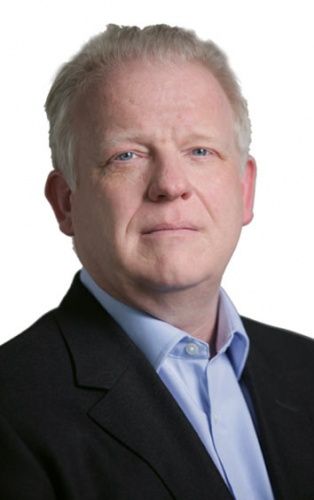 You could be forgiven for thinking that financial advice is a profession in perma-crisis, given the consistent narrative about falling numbers, poor career and client succession, and an image stuck in the past.
You could be forgiven for thinking that financial advice is a profession in perma-crisis, given the consistent narrative about falling numbers, poor career and client succession, and an image stuck in the past.
While it’s true that the constantly changing and increasing demands of regulation put advisers and planners under continuous pressure, the reality is that the number of financial advisers in the UK has been stable, even growing slightly in recent years. That’s good news for maintaining access to the crucial protection, investment and pensions advice that is needed now more than ever.
In fact, gains in adviser productivity, many of which have been driven as a direct result of technology-gained efficiency, means advisers have increased the number of active clients in the past few years. On average, the number of clients served per adviser increased by 47% between 2016 and 2023. That’s an impressive productivity gain by any measure.
This shows what technology can do. More clients mean more opportunities to provide protection advice, and more pensions and investment planning means greater security in long-term finances.
However, despite these improvements, it’s nowhere near enough. It is estimated that just 8% of UK adults had accessed financial advice during 2023. That leaves 92% vulnerable – lacking the cover needed to protect themselves from the impact of early death, ill-health and unable to plan for a secure and comfortable retirement.
The need is getting greater all the time, but sadly the supply of advisers can’t keep pace.
It is estimated that just 8% of UK adults had accessed financial advice during 2023. That leaves 92% vulnerable
This is precisely why we’ve heard so much debate in recent months about the next generation of financial advice. Whether guided, targeted supported or simplified advice – the case for a new, stripped down and less personalised service is growing all the time. It is becoming increasingly clear that this is also the ambition of both HM Treasury and the FCA.
Let’s be clear. This would represent more than just a quiet evolution of the current advice model – this would be a noisy revolution. The FCA has, in recent years, prioritised what many would call ‘gold standard’ advice – clients having access to fully personalised, tailored and bespoke service – typically delivered face-to-face.
In pursuing a simplified advice model, the FCA, alongside HM Treasury, seem to be finally accepting that this model simply isn’t scalable to the extent required. Advice as we know it cannot cost-effectively reach the mass market. They have also accepted the huge societal good that financial advice can provide.
However, simply acceptance and ambition alone will not make it happen. A simplified or guided advice regime needs a whole host of enablers in place before it becomes a reality.
First, industry foundations need to be fixed. There is no point in pursuing a slick, digital advice service that opens up access to advice and sets expectation that the rest of the financial services value chain simply cannot meet.
Rarely a week goes by without another story about failing provider service. Whether that’s protection payouts or pension transfers, service standards are not consistent across the board and all too often disjointed and manual. This needs tackling at source.
We’ve seen that integrated technology can make advisers more efficient and productive, and the same can be the case for providers too. Until now, many (especially in pensions) have chosen to wait to update years or decades-old legacy technology – fearing project scope creep and migration risk.
That fear needs to be replaced with the eye for opportunity. Technology has changed. Project and programmes have changed. In terms of provider tech, the time is now – not tomorrow.
A simplified or guided advice regime needs a whole host of enablers in place
The issue of margins also needs to be addressed. Take the UK protection market, for example, which has perhaps the most competitive premiums across the developed world. This competition has driven down provider margin, made reward for success smaller and reduced provider longevity – evidenced by recent insurer withdrawals.
At present, it’s hard for insurers to increase margin without increasing premiums to the detriment of demand. So again, efficiency is the answer. Advisers are crying out for slicker, quicker service. A slicker, quicker service that can be achieved by deploying simple, digitised processes and improved access to manage applications and policies. Digital isn’t just cheaper, it’s better.
Finally, and perhaps most importantly is acceptance. Change is coming, and if it means improving access to advice for more people, change is good. This comes with caveats; there is nothing like a personalised, face-to-face service, so automation needs to be taken with a pinch of pragmatism.
However, to fix this pressing and complex issue, and ensure people get the financial help they need, we must begin by using technology to provide the basics instead of leaving people with nothing at all.
Paul Yates is product strategy director at iPipeline














Nice article Paul and I completely agree with the thrust of your argument. I suspect todays “full fat” financial advice sector will survive and become ever more focused on the richest 10% of society.
I really do hope the market for Targeted Support grows very quickly to become the primary source of help for mass affluent consumers to manage their money better. But, the suppliers of Targeted Support services will not be those delivering todays full fat advice services. It needs a different mindset.